Creating a sense of privacy in your outdoor space doesn’t need to involve unsightly fences or walls. Plants provide a natural and aesthetically pleasing solution, offering beauty, shade, and sound barriers all at once. Whether you’re looking to block out prying eyes, reduce noise, shield against wind, or define garden spaces, the right plants can enhance your landscape while serving a practical purpose.
From fast-growing trees and dense hedges to flowering climbers and ornamental grasses, there’s a privacy plant suited for every garden size and style. Some options, like Bamboo and Leyland Cypress, provide instant coverage, while others, like Boxwood and Euonymus, create neatly manicured barriers over time.
No matter your space or climate, these 11 best plants for privacy will help you create a lush, secluded retreat where you can relax and enjoy the outdoors in peace.
Why Use Plants for Privacy?
Before we jump into the list, let’s summarize why plants make an excellent choice for creating privacy:
- Natural Aesthetic: They enhance your outdoor space with texture, color, and seasonal interest, creating a lush and inviting environment.
- Air Quality Improvement: Many plants act as natural air purifiers, filtering pollutants, trapping dust, and increasing oxygen levels.
- Eco-Friendly Solution: Unlike walls or fences, plants absorb carbon dioxide, help reduce noise pollution, and create a habitat for beneficial wildlife like birds, butterflies, and bees.
- Versatility: They can be pruned, shaped, or trained to fit different spaces, whether you need a tall, dense hedge, a flowering screen, or a soft, airy barrier.
- Temperature Regulation: Green screens help cool down outdoor areas by providing shade and reducing heat buildup, making your space more comfortable in hot weather.
- Wind and Sound Barrier: Dense privacy plants act as natural windbreaks and noise reducers, helping to create a more peaceful outdoor retreat.
- Erosion Control: Some privacy plants, like bamboo and ornamental grasses, help stabilize soil and prevent erosion, especially on slopes or in areas prone to heavy rain.
- Cost-Effective and Sustainable: Unlike fences or walls that may require repairs or replacements, privacy plants grow stronger over time, require minimal upkeep, and last for years.
- Year-Round Interest: Depending on your choice, privacy plants can provide evergreen foliage, seasonal blooms, or vibrant fall colors, keeping your landscape attractive all year long.
- Adds Property Value: A well-landscaped yard with privacy-enhancing plants can increase curb appeal and overall property value, making it a smart long-term investment.
With so many benefits, Best Plants For Privacy offer a natural, practical, and beautiful way to create a secluded outdoor space. Now, let’s explore the top picks to help you build the perfect living privacy screen!
1. Bamboo
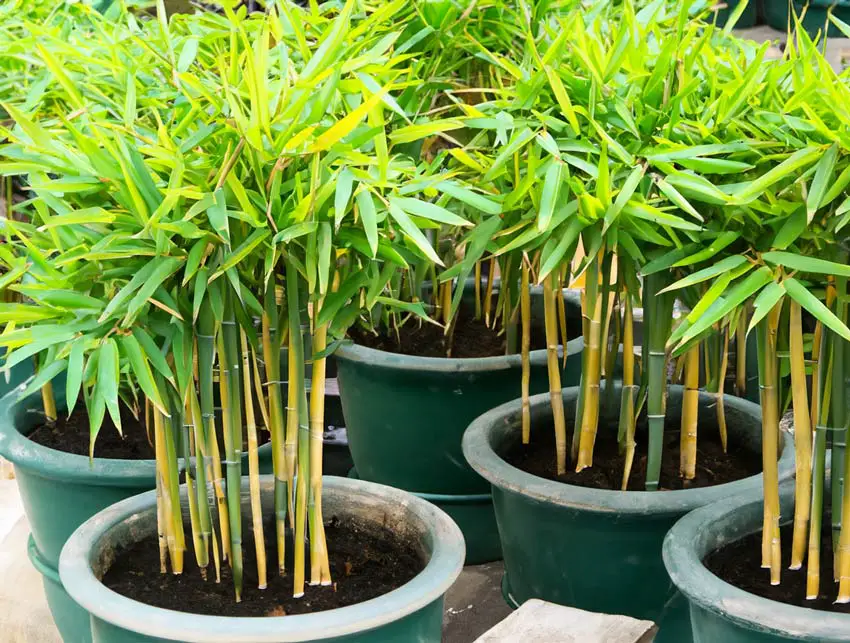
Why Choose Bamboo: Bamboo is a favorite for privacy due to its incredibly fast-growing nature. With a variety of species to choose from, you can find clumping bamboo types that are perfect for maintaining control in your space. It forms tall, dense screens, making it ideal for blocking neighbors’ views while adding a tropical touch to your garden. Additionally, bamboo helps reduce noise pollution and can act as a windbreak in open areas.
Best for: Quick-growing screens, tropical aesthetics, and windbreaks
Care Tips:
- Position in full sun or partial shade.
- Ensure regular watering, especially during dry seasons.
- Choose clumping varieties like Bambusa or Fargesia to prevent spreading.
- Apply a layer of mulch to retain moisture and regulate soil temperature.
- Prune occasionally to maintain the desired height and thickness.
- Use well-draining, nutrient-rich soil for optimal growth.
- Provide support or containment barriers to prevent invasive spreading.
Including bamboo in your landscape is a great way to create a lush, green barrier, making it a top choice among the 11 Best Plants for Privacy.
2. Arborvitae
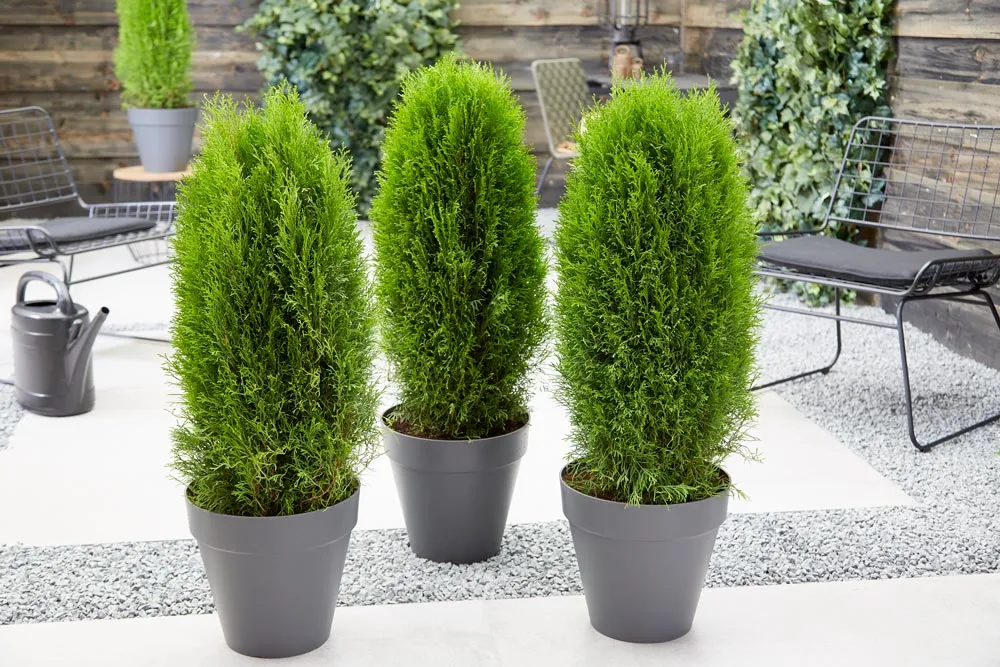
Why Choose Arborvitae: Renowned for its narrow, pyramid-like shape and evergreen foliage, arborvitae is a staple in privacy planting. This plant grows tall and dense, providing year-round coverage. It is low-maintenance, adaptable to various climates, and resistant to pests and diseases. Arborvitae also acts as a natural windbreak and noise barrier, making it an excellent choice for both urban and suburban settings.
Best for: A classic hedge look, year-round privacy, and wind protection
Care Tips:
- Thrives in well-drained soil and full sunlight.
- Regular pruning maintains its neat shape.
- Water deeply, especially during dry spells, to promote strong root growth.
- Space plants properly (3-4 feet apart) to allow air circulation and prevent disease.
- Apply mulch around the base to retain moisture and regulate soil temperature.
- Use a balanced fertilizer in early spring to encourage healthy growth.
Arborvitae is a timeless option for creating a structured and elegant green wall, making it a must-have among the 11 Best Plants for Privacy.
3. Leyland Cypress
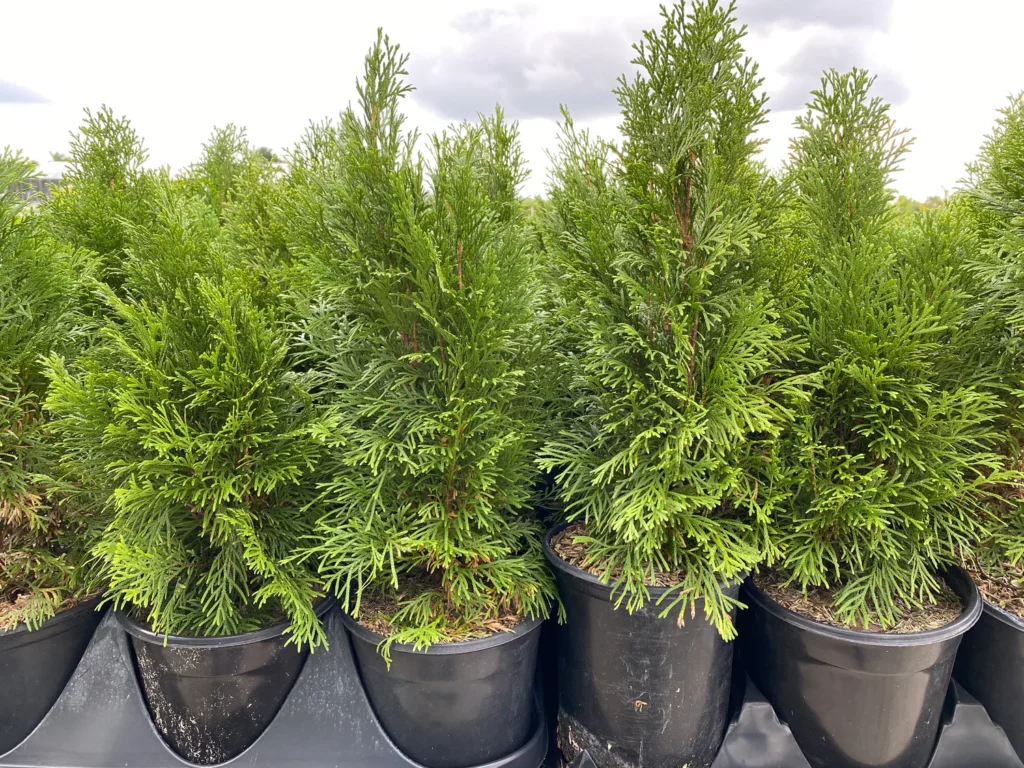
Why Choose Leyland Cypress: This plant is one of the quickest-growing privacy trees, reaching heights of 40-60 feet in just a few years. Its densely packed, feathery foliage provides exceptional privacy and shade. Leyland Cypress is highly adaptable, tolerating various soil types and weather conditions. It also acts as an effective wind and noise barrier, making it a popular choice for large landscapes and suburban yards.
Best for: Tall, fast-growing hedges, windbreaks, and large privacy screens
Care Tips:
- Plant in well-draining soil.
- Moderate watering and occasional pruning will keep it healthy.
- Prefers full sun but can tolerate partial shade.
- Space trees at least 6-10 feet apart to allow proper airflow.
- Prune lightly to maintain shape and encourage denser growth.
- Apply mulch to retain moisture and protect the roots.
With its rapid growth and dense foliage, Leyland Cypress is a top contender among the 11 Best Plants for Privacy.
4. Boxwood
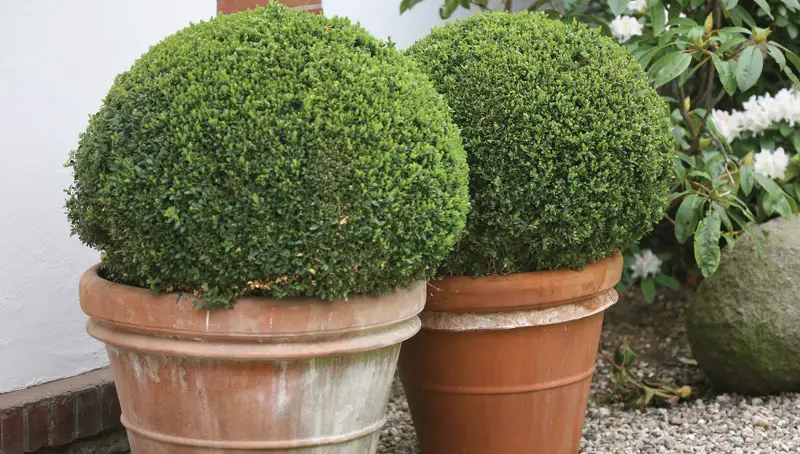
Why Choose Boxwood: Boxwoods are highly adaptable shrubs prized for their thick, lush foliage and ability to be shaped into various forms. They’re perfect for creating geometric or elegant borders, adding a refined touch to any landscape. Boxwoods are also evergreen, ensuring year-round privacy and structure. Their slow to moderate growth rate makes them easy to maintain, and they thrive in both formal gardens and casual landscapes.
Best for: Formal, manicured hedges, elegant borders, and year-round greenery
Care Tips:
- Prefers partial to full sunlight.
- Prune regularly to encourage dense growth.
- Plant in well-drained, fertile soil to prevent root rot.
- Water consistently, especially during dry periods, but avoid overwatering.
- Mulch around the base to retain moisture and regulate temperature.
- Protect from harsh winter winds with burlap or windbreaks in colder climates.
With its timeless beauty and versatility, Boxwood is an excellent choice among the 11 Best Plants for Privacy.
5. Privet
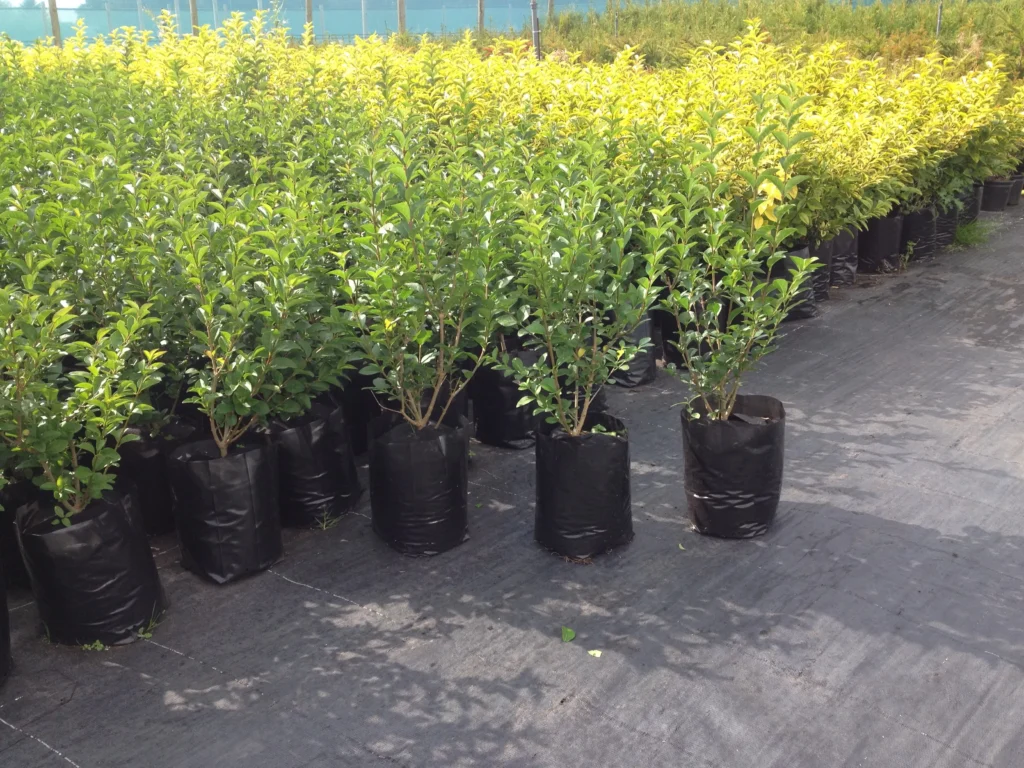
Why Choose Privet: Privet is a hardy shrub known for its fast growth and robustness. It provides excellent privacy and can be shaped into tall hedges or more decorative patterns. With its dense foliage and adaptability, privet is a popular choice for creating structured garden borders and natural green fences. It is also highly tolerant of urban pollution, making it ideal for city gardens.
Best for: Low-maintenance hedges, fast-growing privacy screens, and urban gardens
Care Tips:
- Requires minimal maintenance.
- Tolerates a range of soil types and light conditions.
- Prefers well-draining soil and moderate watering.
- Prune regularly to maintain shape and encourage dense growth.
- Resistant to pests and diseases but benefits from occasional fertilization.
- Can be grown as a formal hedge or left to grow naturally for a more relaxed look.
With its resilience and versatility, Privet is a standout choice among the 11 Best Plants for Privacy.
Related Topics:
6. Clematis
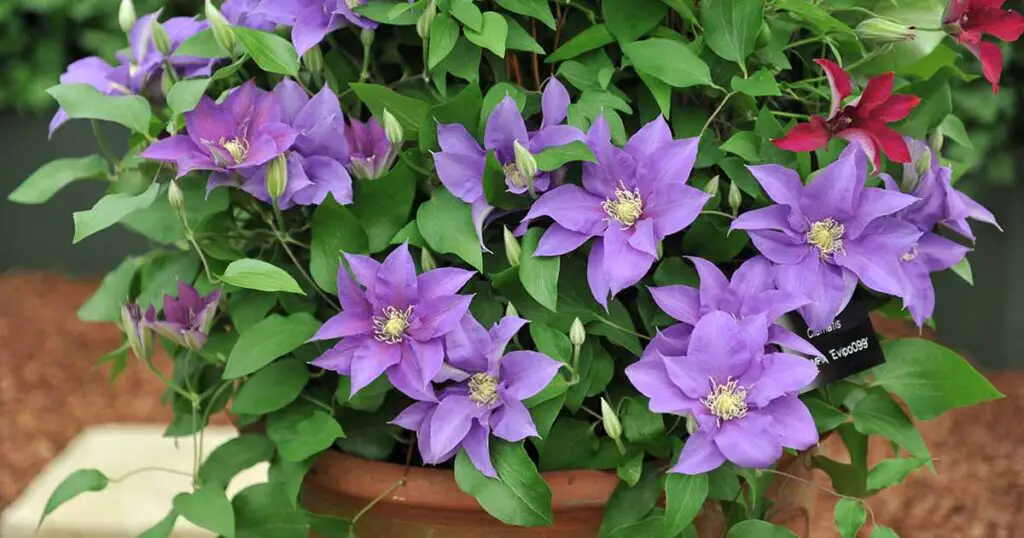
Why Choose Clematis: For those who prefer flowering privacy plants, clematis is the perfect addition. This vine produces stunning blooms in a variety of colors and can climb trellises, fences, or pergolas to form a beautiful floral barrier. With its vigorous growth and long-lasting blooms, clematis adds both privacy and elegance to any garden.
Best for: Climbing walls, fences, trellises, and adding floral beauty to privacy screens
Care Tips:
- Plant in sunny spots with cool, shaded roots (use mulch or ground cover plants to keep roots cool).
- Train the vines early to ensure strong, upward growth.
- Provide sturdy support like trellises or arbors for climbing.
- Water regularly, especially during dry spells, but avoid waterlogging.
- Prune according to the clematis variety (some bloom on old wood, others on new growth).
- Apply balanced fertilizer during the growing season to encourage lush blooms.
With its breathtaking flowers and climbing ability, Clematis is a must-have among the 11 Best Plants for Privacy.
7. Holly
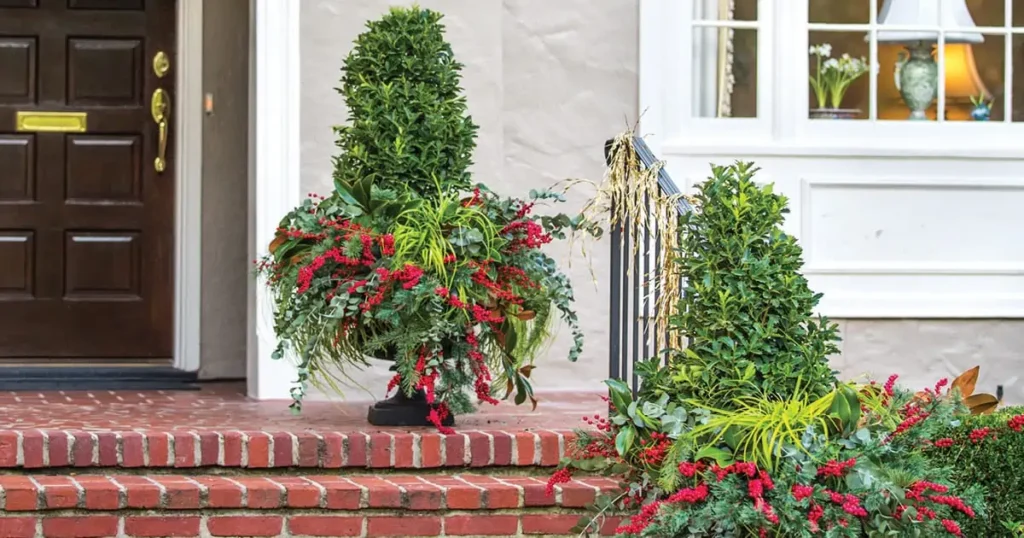
Why Choose Holly: Holly isn’t just a festive plant; its thick, spiky leaves and bright berries make for an attractive privacy shrub. With both evergreen and deciduous varieties, holly can suit any garden. Its dense foliage provides year-round coverage, while the berries attract birds and add seasonal interest. Holly is also highly resistant to pests and diseases, making it a reliable and long-lasting choice for privacy hedges.
Best for: Dense, ornamental hedges, year-round privacy, and wildlife-friendly gardens
Care Tips:
- Plant in full sun for vibrant growth.
- Use gloves during pruning due to its spiky leaves.
- Prefers well-drained, slightly acidic soil.
- Water regularly during dry periods, but avoid overwatering.
- Prune in late winter or early spring to maintain shape and encourage dense growth.
- Some holly varieties require both male and female plants to produce berries, so plan accordingly.
With its striking appearance and natural resilience, Holly is a fantastic choice among the 11 Best Plants for Privacy.
8. Fargesia

Why Choose Fargesia: Fargesia, a clumping bamboo variety, is perfect for those who want the privacy benefits of bamboo without the worry of invasive spreading. Unlike running bamboo, Fargesia grows in tight clusters, making it easy to manage. Its tall, arching stems and delicate foliage create an elegant, natural screen that sways beautifully in the wind. This bamboo variety is also cold-hardy and deer-resistant, making it an excellent choice for various climates.
Best for: Non-invasive privacy solutions, elegant green screens, and cold-hardy landscapes
Care Tips:
- Water regularly during the growing season to encourage strong growth.
- Prefers partial shade to full sun exposure.
- Plant in well-drained, nutrient-rich soil.
- Apply mulch around the base to retain moisture and protect roots in extreme temperatures.
- Avoid waterlogging, as Fargesia prefers moist but not soggy conditions.
- Prune dead or weak culms occasionally to maintain a tidy appearance.
With its manageable growth habit and lush, dense foliage, Fargesia is a top pick among the 11 Best Plants for Privacy.
9. Euonymus
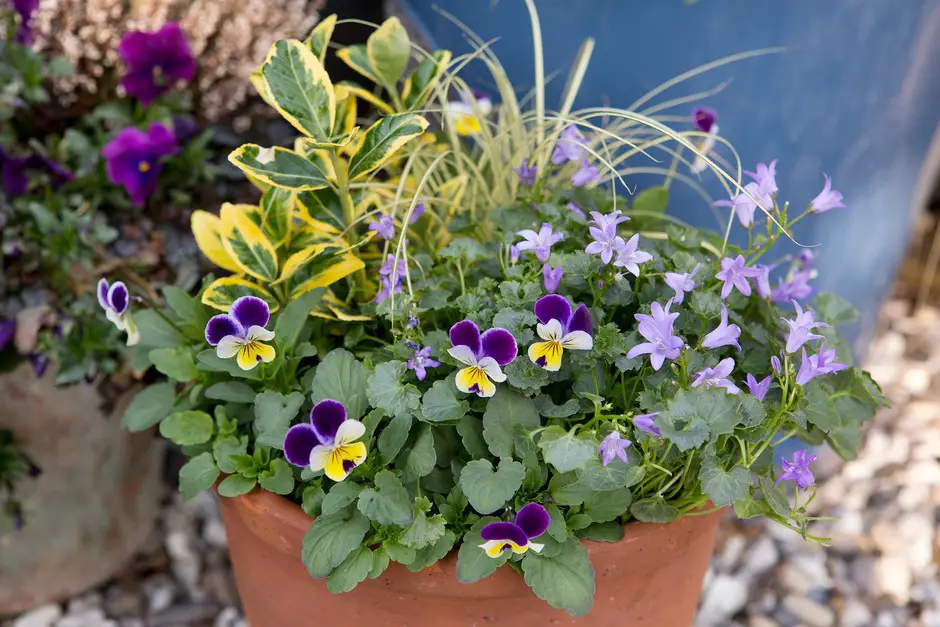
Why Choose Euonymus: Euonymus is a versatile shrub that works well for creating privacy hedges. With its dense foliage and ability to tolerate shade, it’s an excellent option for various environments. This hardy plant comes in both evergreen and deciduous varieties, some featuring variegated leaves that add visual interest. Euonymus is also highly adaptable, thriving in urban settings, suburban gardens, and even coastal areas.
Best for: Adaptable hedges, low-maintenance privacy screens, and decorative borders
Care Tips:
- Thrives in various soils and moderate sunlight.
- Prune as needed to maintain shape and height.
- Water regularly, but avoid overwatering, as Euonymus is drought-tolerant once established.
- Plant in well-drained soil for optimal growth.
- Apply mulch around the base to retain moisture and suppress weeds.
- Watch for pests like scale insects and treat as necessary to keep foliage healthy.
With its adaptability and dense growth, Euonymus is a fantastic choice among the 11 Best Plants for Privacy.
10. Wisteria
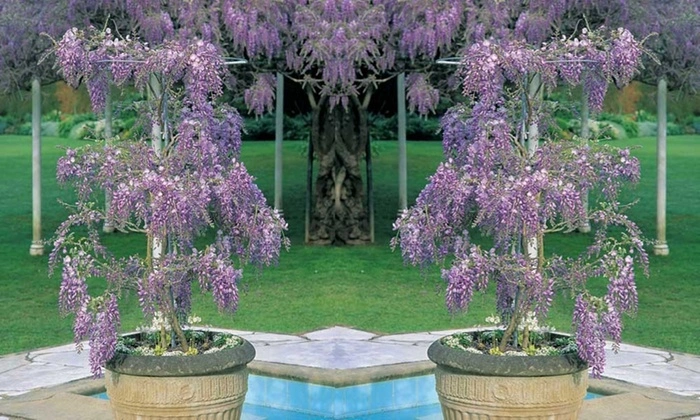
Why Choose Wisteria: With its cascading clusters of purple, white, or pink blooms, wisteria not only provides privacy but also adds an air of sophistication to any garden. This fast-growing vine can cover pergolas, fences, and trellises, creating a stunning floral barrier. Its fragrant blossoms attract pollinators like bees and butterflies, enhancing the garden’s biodiversity. Wisteria’s elegant, draping flowers make it one of the most visually striking options for a privacy screen.
Best for: A fragrant, flowering barrier, pergolas, and trellises
Care Tips:
- Requires sturdy structures to climb, such as arbors or heavy-duty trellises.
- Full sunlight encourages abundant blooms.
- Prune regularly to control growth and promote flowering.
- Plant in well-drained, fertile soil for best results.
- Water deeply but allow the soil to dry slightly between watering.
- Avoid planting too close to buildings or delicate structures, as wisteria’s strong vines can become heavy over time.
With its breathtaking flowers and fast-growing nature, Wisteria is a stunning addition to the 11 Best Plants for Privacy.
11. Pampas Grass
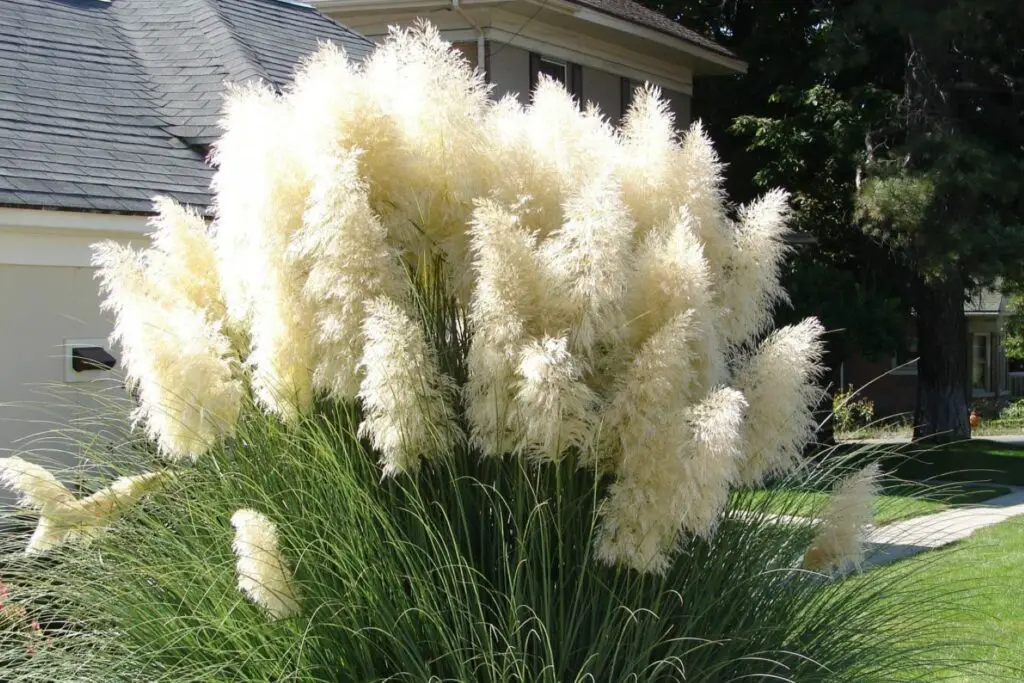
Why Choose Pampas Grass: This ornamental grass grows tall with feathery plumes that create a soft yet effective privacy screen. It’s ideal for a casual, natural look and works well in both modern and rustic landscapes. Pampas grass is highly resilient, thriving in a variety of climates while requiring minimal upkeep. Its graceful, swaying plumes add movement and texture to outdoor spaces, making it a stylish yet functional choice for Best Plants For Privacy.
Best for: Low-maintenance privacy screens, windbreaks, and decorative landscaping
Care Tips:
- Tolerates drought and poor soil, making it a hardy choice for various conditions.
- Cut back annually to encourage fresh growth and maintain its shape.
- Prefers full sun for optimal growth and plume production.
- Water occasionally, especially during extreme drought, but avoid overwatering.
- Plant in well-draining soil to prevent root rot.
- Be mindful of placement, as pampas grass can spread aggressively if not maintained.
With its tall, elegant plumes and easy-care nature, Pampas Grass is a standout option among the 11 Best Plants for Privacy.
How to Choose the Right Privacy Plant?
When selecting privacy plants, there are a few key factors to consider for Best Plants For Privacy:
- Climate: Ensure the plant thrives in your local environment. Some plants, like Leyland Cypress, tolerate cold climates, while others, like Bamboo, prefer warmer conditions.
- Growth Rate: Fast-growing plants like Bamboo and Leyland Cypress offer instant results, while slower-growing options, such as Boxwood, provide long-term, stable solutions.
- Space Requirements: For small gardens, compact options like Boxwood or Euonymus are ideal, while larger properties can accommodate tall trees like Arborvitae or Leyland Cypress.
- Maintenance Level: Choose low-maintenance plants like Privet or Pampas Grass if you’re short on time, while Wisteria and Clematis may require regular pruning and training.
- Sunlight Needs: Some privacy plants, like Wisteria and Pampas Grass, thrive in full sun, while others, such as Holly and Euonymus, tolerate shade.
- Aesthetic Appeal: Consider the visual impact—flowering vines like Clematis and Wisteria add color, while evergreen options like Arborvitae and Holly provide year-round coverage.
- Privacy Density: If you need complete seclusion, dense options like Bamboo, Privet, and Fargesia work best. For a softer look, ornamental grasses like Pampas Grass create a natural screen.
- Purpose: Determine whether you need a windbreak, noise barrier, or simple visual screening. Plants like Holly and Leyland Cypress help reduce noise, while Pampas Grass softens wind exposure.
By evaluating these factors, you can select the Best Plants For Privacy that meets your needs while enhancing your outdoor space.
Creating a private and serene outdoor space is easy with the right plants. The 11 best plants for privacy offer a variety of options, from fast-growing bamboo and dense hedges like privet to elegant climbers like wisteria and clematis. Whether you need a tall, evergreen barrier, a fragrant floral screen, or a low-maintenance natural fence, there’s a perfect plant to match your needs and style.
Beyond providing privacy, these plants enhance your garden’s beauty, attract wildlife, and contribute to a peaceful atmosphere. By considering factors like climate, maintenance, and space, you can choose the ideal greenery to transform your outdoor area into a secluded retreat.
Start planting today and enjoy a more beautiful, private, and inviting landscape for years to come!
FAQs:
Which privacy plant grows the fastest?
Bamboo and Leyland Cypress are among the fastest-growing privacy plants. Bamboo can grow several feet per year, while Leyland Cypress can add 3-5 feet annually, making them ideal for quick privacy solutions.
What are the best low-maintenance plants for privacy?
If you’re looking for low-maintenance options, consider Privet, Arborvitae, and Pampas Grass. These plants require minimal pruning and can thrive in various conditions with little care.
Can I grow privacy plants in small spaces or containers?
Yes! Compact options like Boxwood, Euonymus, and Fargesia (a non-invasive clumping bamboo) are great choices for small gardens or container planting, providing privacy without taking up too much space.


2 thoughts on “11 Best Plants For Privacy: Natural Green Screen!”